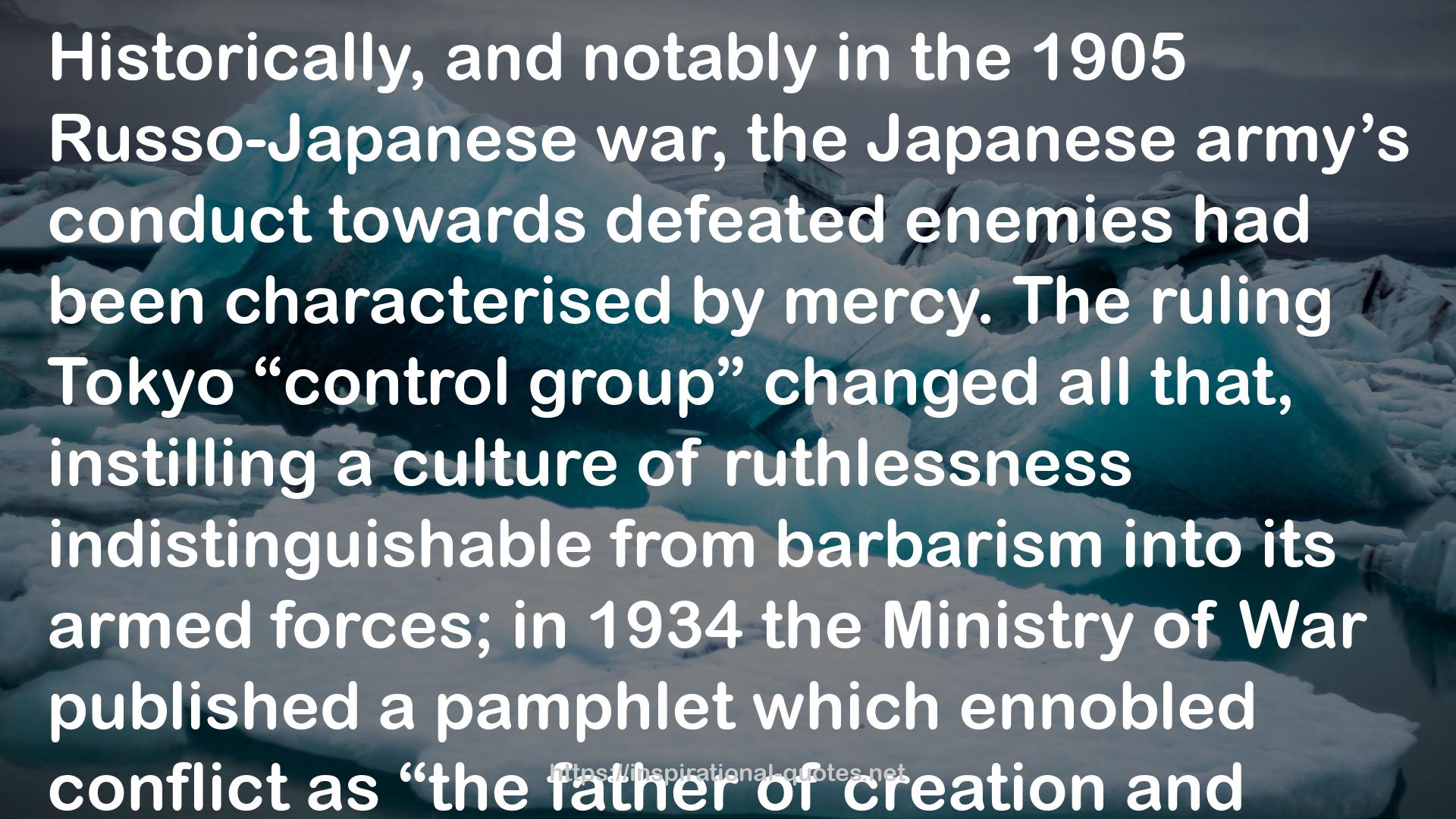" Historically, and notably in the 1905 Russo-Japanese war, the Japanese army’s conduct towards defeated enemies had been characterised by mercy. The ruling Tokyo “control group” changed all that, instilling a culture of ruthlessness indistinguishable from barbarism into its armed forces; in 1934 the Ministry of War published a pamphlet which ennobled conflict as “the father of creation and mother of culture. Rivalry for supremacy does for the state what struggle against adversity does for the individual.” The Allies now began to discover the significance of this merciless vision for those who fell into enemy hands. Before "
― Max Hastings , Inferno: The World at War, 1939-1945
